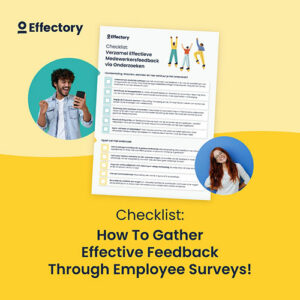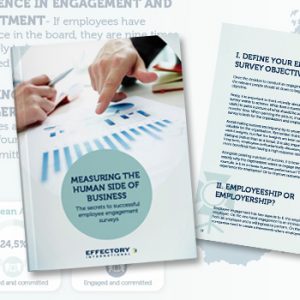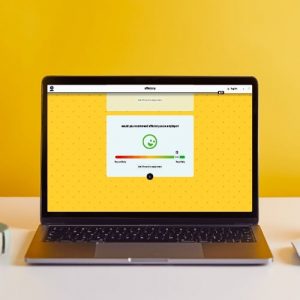Employee surveys reveal a wealth of information about an organisation. Once the results are in, we often come across clients who prefer not to share specific results of the surveys. Apprehensions hint at an uneasiness felt when faced with sharing employee engagement survey results and discussing them. Often, it’s because people feel ‘unsafe’ to share, let alone discuss the results of the employee survey. At its core, it’s the omission of information to avoid dealing with what is really going on. To counter this, we’ve drawn up three dimensions that can help create a safe environment for discussion, once the results are in.
Sharing employee engagement survey results in an unsafe environment

Before the survey: Link methods to values
Most organisations have a set of core values that indicate what a company stands for. For instance, these values can include, transparency or cooperation. Suppose transparency is a core value for your organisation. A link can clearly be made to the survey, as conducting this survey and analysing results will enable transparency within the organisation. If cooperation is a value, use this value as support to distribute the survey across the entire organisation. Remember to match the core values of your organisation, as a defining link to why an employee survey should be completed, it will help and strengthen your case once you will have to share the employee engagement survey results.
How to gather feedback from your employees
The definitive checklist for creating your employee engagement survey.
DownloadDuring the survey: Consider the different stages of security
There are five phases in which safety can be measured. Keep these in mind while a survey is in progress to allow for context when the results come in.
- Phase 1: This is a closed environment. Safety is not a topic of conversation.
- Phase 2: Employees won’t out-right define safety as a construct, but they do touch on the term, however in abstract. “A culture of fear,” is a phrase that is often attributed to this phase.
- Phase 3: Employees are more concrete about the construct of safety, but there persists a level of ambiguity. They’ll use expressions like “I’ve heard that…” or will use second hand examples from the past. This is typical behaviour for phase 3.
- Phase 4: In this phase, employees dare to say what they themselves have experienced as unsafe, and use clear examples.
- Phase 5: The moment an employee feels uncomfortable or unsafe, they will express this feeling, without fear of retribution.
In an organisation, there are teams and even individuals who relate to multiple different phases of security. Knowing that this exists is the first step to help teams to become aware of the security phases, and facilitate them into the next phase. With this in mind, its understandable that when sending out something (an employee survey) to an entire organisation, there will always be pushback. To counter this, always maintain the company’s core values as a clear link to support your methods. By doing so, you’ll have the support needed to help everyone get a clear understanding.
Human side of business engagement e-book
Discover the secrets to successful employee engagement surveys.
DownloadSharing the survey results: Help set expectations for follow up conversations
You have shared the employee engagement survey results, and now teams can take steps for improvement. If the results are going to be discussed openly, the necessity for a safe and secure environment are key. By clearly setting the expectations and conditions around the discussion, assumptions are quelled and teams will experience freedom that comes with a safe environment. For instance, employees may ask that discussions have a level of confidentiality and will ‘stay within the room.’ Other times, managers must ensure that there won’t be consequences for what is said. By clearly setting the criteria, employees will work together to create a safe environment to share their concerns and engage in conversation.
About Effectory
Based in Amsterdam, Effectory is Europe’s largest independent employee survey provider, with over 20 years of experience in helping organisations become sustainably successful. We believe the key to sustainable success, is through gathering and listening to employee feedback. To facilitate this, we offer a variety of feedback tools which enable companies to learn from their employees and improve from within.
Book a free demo. See our solutions in action.
Effectory is Europe’s Leading provider of Employee Listening Solutions. Schedule a product demo and discover how to enhance your employees’ engagement.
Demo request

